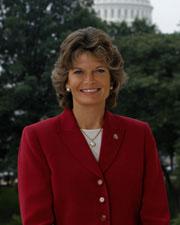0
0
0
Remote Seafood Employee Meals Tax Parity Act
3/12/2024, 4:13 AM
Summary of Bill S 3795
Bill 118 s 3795, also known as the Remote Seafood Employee Meals Tax Parity Act, is a piece of legislation currently being considered by the US Congress. The purpose of this bill is to address a discrepancy in tax treatment for remote seafood employees who receive meals as part of their compensation.
Under current tax law, employees who work in remote locations, such as offshore seafood processing facilities, are not able to exclude the value of meals provided by their employer from their taxable income. This is in contrast to employees who work in other industries, who are able to exclude the value of employer-provided meals from their taxable income.
The Remote Seafood Employee Meals Tax Parity Act seeks to rectify this disparity by allowing remote seafood employees to exclude the value of meals provided by their employer from their taxable income. This would bring the tax treatment of remote seafood employees in line with employees in other industries and ensure that they are not unfairly penalized for receiving meals as part of their compensation. Overall, the Remote Seafood Employee Meals Tax Parity Act aims to provide equal tax treatment for all employees, regardless of the industry in which they work. This bill is currently under consideration in Congress and has the potential to have a positive impact on remote seafood employees across the country.
Under current tax law, employees who work in remote locations, such as offshore seafood processing facilities, are not able to exclude the value of meals provided by their employer from their taxable income. This is in contrast to employees who work in other industries, who are able to exclude the value of employer-provided meals from their taxable income.
The Remote Seafood Employee Meals Tax Parity Act seeks to rectify this disparity by allowing remote seafood employees to exclude the value of meals provided by their employer from their taxable income. This would bring the tax treatment of remote seafood employees in line with employees in other industries and ensure that they are not unfairly penalized for receiving meals as part of their compensation. Overall, the Remote Seafood Employee Meals Tax Parity Act aims to provide equal tax treatment for all employees, regardless of the industry in which they work. This bill is currently under consideration in Congress and has the potential to have a positive impact on remote seafood employees across the country.
Congressional Summary of S 3795
Remote Seafood Employee Meals Tax Parity Act
This bill provides that the 50% limitation on the tax deduction for business meals shall not apply to meals provided on certain fishing vessels or at certain fish processing facilities.
Read the Full Bill
Current Status of Bill S 3795
Bill S 3795 is currently in the status of Bill Introduced since February 9, 2024. Bill S 3795 was introduced during Congress 118 and was introduced to the Senate on February 9, 2024. Bill S 3795's most recent activity was Read twice and referred to the Committee on Finance. as of February 9, 2024
Bipartisan Support of Bill S 3795
Total Number of Sponsors
1Democrat Sponsors
0Republican Sponsors
1Unaffiliated Sponsors
0Total Number of Cosponsors
2Democrat Cosponsors
0Republican Cosponsors
2Unaffiliated Cosponsors
0Policy Area and Potential Impact of Bill S 3795
Primary Policy Focus
Alternate Title(s) of Bill S 3795
Remote Seafood Employee Meals Tax Parity Act
Remote Seafood Employee Meals Tax Parity Act
A bill to amend the Internal Revenue Code of 1986 to provide that the 50 percent limitation on the deduction for meal expenses does not apply to meals provided on certain fishing boats or at certain fish processing facilities.
A bill to amend the Internal Revenue Code of 1986 to provide that the 50 percent limitation on the deduction for meal expenses does not apply to meals provided on certain fishing boats or at certain fish processing facilities.
Comments
Sponsors and Cosponsors of S 3795
Latest Bills
Providing amounts for the expenses of the Committee on Ethics in the One Hundred Nineteenth Congress.
Bill HRES 131December 12, 2025
Providing for congressional disapproval under chapter 8 of title 5, United States Code, of the rule submitted by the Bureau of Land Management relating to "Central Yukon Record of Decision and Approved Resource Management Plan".
Bill HJRES 106December 12, 2025
Expressing the sense of the House of Representatives in condemning the Government of the People's Republic of China for its harassment and efforts to intimidate American citizens and other individuals on United States soil with the goal of suppressing speech and narratives the People's Republic of China finds unwelcome.
Bill HRES 130December 12, 2025
Providing for congressional disapproval under chapter 8 of title 5, United States Code, of the rule submitted by the Bureau of Land Management relating to "North Dakota Field Office Record of Decision and Approved Resource Management Plan".
Bill HJRES 105December 12, 2025
Providing for congressional disapproval under chapter 8 of title 5, United States Code, of the rule submitted by the Bureau of Land Management relating to "Miles City Field Office Record of Decision and Approved Resource Management Plan Amendment".
Bill HJRES 104December 12, 2025
Providing amounts for the expenses of the Select Committee on the Strategic Competition Between the United States and the Chinese Communist Party in the One Hundred Nineteenth Congress.
Bill HRES 104December 12, 2025
Critical Access for Veterans Care Act
Bill S 1868December 12, 2025
OATH Act of 2025
Bill S 1665December 12, 2025
A bill to extend the authority for modifications to the Second Division Memorial in the District of Columbia.
Bill S 1353December 12, 2025
Saving Our Veterans Lives Act of 2025
Bill S 926December 12, 2025

